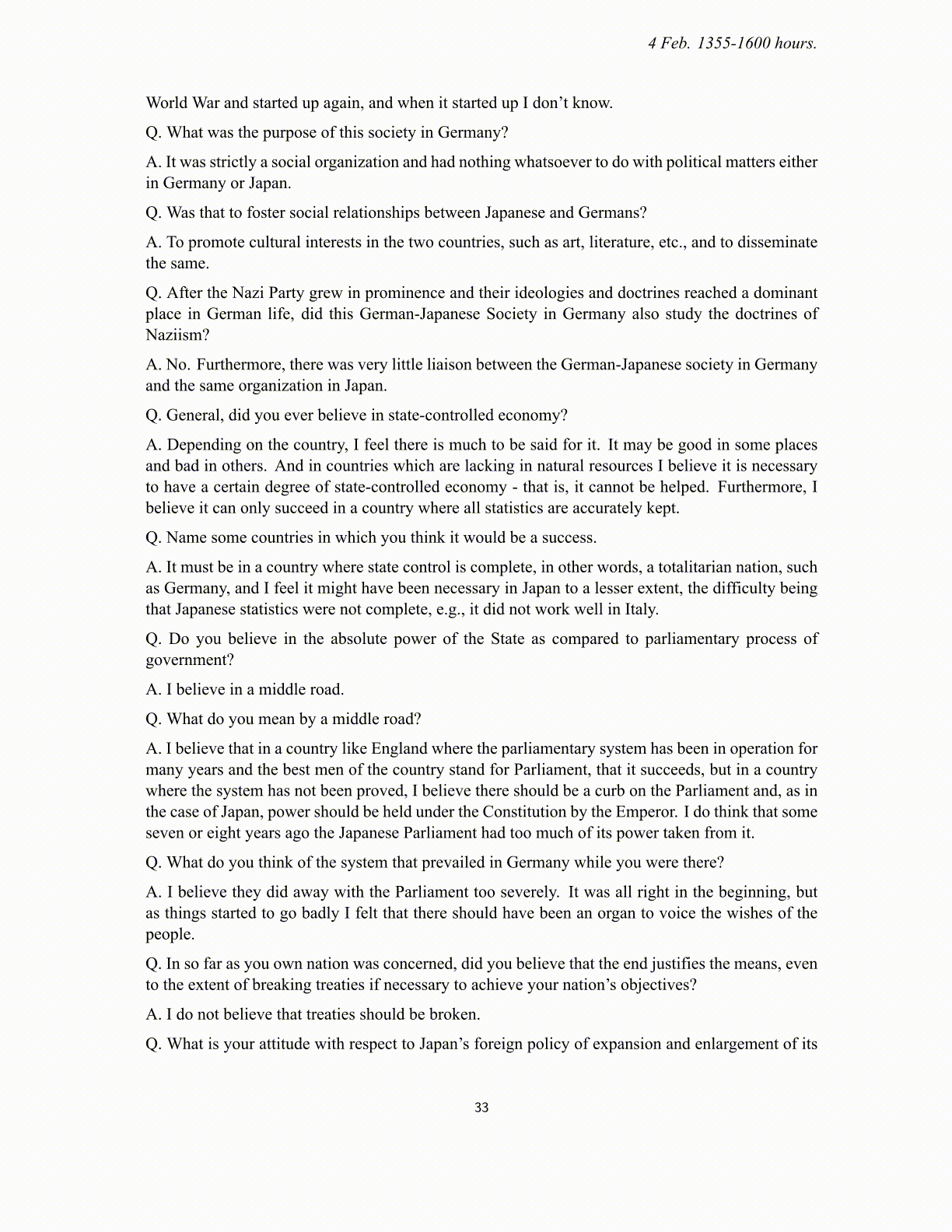
4 Feb. 1355-1600 hours. World War and started up again, and when it started up I don’t know. Q. What was the purpose of this society in Germany? A. It was strictly a social organization and had nothing whatsoever to do with political matters either in Germany or Japan. Q. Was that to foster social relationships between Japanese and Germans? A. To promote cultural interests in the two countries, such as art, literature, etc., and to disseminate the same. Q. After the Nazi Party grew in prominence and their ideologies and doctrines reached a dominant place in German life, did this German-Japanese Society in Germany also study the doctrines of Naziism? A. No. Furthermore, there was very little liaison between the German-Japanese society in Germany and the same organization in Japan. Q. General, did you ever believe in state-controlled economy? A. Depending on the country, I feel there is much to be said for it. It may be good in some places and bad in others. And in countries which are lacking in natural resources I believe it is necessary to have a certain degree of state-controlled economy - that is, it cannot be helped. Furthermore, I believe it can only succeed in a country where all statistics are accurately kept. Q. Name some countries in which you think it would be a success. A. It must be in a country where state control is complete, in other words, a totalitarian nation, such as Germany, and I feel it might have been necessary in Japan to a lesser extent, the difficulty being that Japanese statistics were not complete, e.g., it did not work well in Italy. Q. Do you believe in the absolute power of the State as compared to parliamentary process of government? A. I believe in a middle road. Q. What do you mean by a middle road? A. I believe that in a country like England where the parliamentary system has been in operation for many years and the best men of the country stand for Parliament, that it succeeds, but in a country where the system has not been proved, I believe there should be a curb on the Parliament and, as in the case of Japan, power should be held under the Constitution by the Emperor. I do think that some seven or eight years ago the Japanese Parliament had too much of its power taken from it. Q. What do you think of the system that prevailed in Germany while you were there? A. I believe they did away with the Parliament too severely. It was all right in the beginning, but as things started to go badly I felt that there should have been an organ to voice the wishes of the people. Q. In so far as you own nation was concerned, did you believe that the end justifies the means, even to the extent of breaking treaties if necessary to achieve your nation’s objectives? A. I do not believe that treaties should be broken. Q. What is your attitude with respect to Japan’s foreign policy of expansion and enlargement of its 33